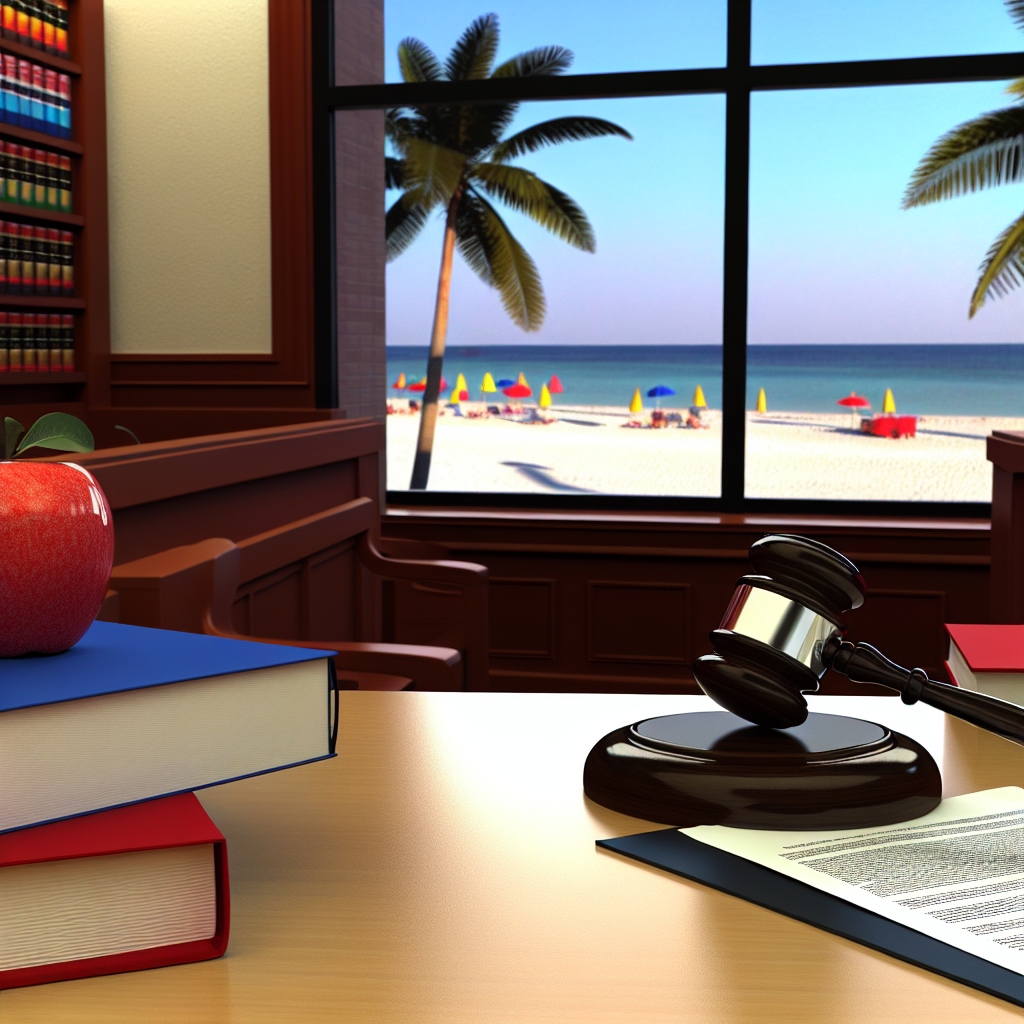
Florida's Content Restriction Laws Face Legal Challenge from Top Publishers
In a bold move that has captured national attention, America's leading publishing houses have united to file a lawsuit against Florida's controversial content restriction laws. This legal battle puts the Sunshine State at the center of a heated debate over free speech, academic freedom, and the future of education in the United States.
The Spark That Ignited the Lawsuit
Last May, Florida Governor Ron DeSantis signed into law a series of measures aimed at regulating educational content in K-12 public schools. These laws mandate stringent reviews of materials touching on sensitive topics such as sexual orientation, gender identity, race relations, and America's founding principles.
"We're ensuring that our children receive an education, not indoctrination," Governor DeSantis stated at the bill signing ceremony. However, critics argue that these laws amount to censorship and suppress crucial discussions on contemporary issues.
Publishing Giants Take a Stand
The lawsuit, filed in federal court last week, brings together an unprecedented coalition of publishing powerhouses. Pearson, Scholastic, and Houghton Mifflin Harcourt are among the plaintiffs challenging what they see as an infringement on First Amendment rights.
John Fallon, CEO of Pearson, didn't mince words: "These laws don't just restrict content; they restrict minds. We're fighting for the intellectual freedom of students and educators alike."
The Classroom Conundrum
The impact of these laws is already being felt in classrooms across Florida. Sarah Mitchell, a high school history teacher in Miami, shared her frustration: "I feel like I'm teaching with one hand tied behind my back. Every lesson plan is scrutinized to the point where meaningful discourse becomes nearly impossible."
Students, too, are noticing the change. Mia Rodriguez, a senior at a Tallahassee high school, observed, "Our class discussions used to be so vibrant. Now, it feels like we're tiptoeing around every topic."
Beyond Florida's Borders
The ripple effects of this legal battle extend far beyond the Sunshine State. Education policy experts are watching closely, recognizing the potential for nationwide implications.
Dr. Laura Jackson, an education policy analyst at the Brookings Institution, noted, "This case could set a precedent that reshapes educational content across the country. It's not just about Florida; it's about the future of American education."
Authors Speak Out
The controversy has also galvanized authors whose works are at the heart of the debate. Jason Reynolds, known for his frank discussions of race and social justice in young adult literature, expressed concern: "Books should challenge readers to think critically. When we start dictating what can and can't be discussed, we're doing a disservice to our youth."
Judy Blume, a stalwart of children's and young adult literature, added her voice to the chorus: "Books have always been a safe space for children to explore difficult questions. Censorship threatens that fundamental role of literature."
The Legal Battlefield
As the case moves forward, legal experts are speculating on its potential trajectory. Many believe the case could eventually make its way to the U.S. Supreme Court, given the weighty First Amendment questions at stake.
"This isn't just about textbooks," said constitutional law expert Professor Emma Lawson. "It's about the very principles of free speech and how they apply in educational settings. The Supreme Court may well have to weigh in on this."
A State Divided
While the lawsuit proceeds, Florida remains deeply divided on the issue. Supporters of the laws argue that they protect children from inappropriate content and preserve traditional values.
"Parents have a right to know and influence what their children are learning," said Maria Hernandez, a parent and advocate for the new laws. "These measures ensure transparency and accountability in our education system."
However, opponents like Dr. James Carter, a professor of education at the University of Florida, worry about the long-term consequences. "When we start limiting what can be taught and discussed in schools, we're not protecting children – we're hindering their ability to think critically and engage with the world around them."
As Florida grapples with these complex issues, the nation watches with bated breath. The outcome of this legal battle could have far-reaching consequences for education, free speech, and the delicate balance between parental rights and academic freedom.
With the federal courts now set to weigh in, the debate over what can and should be taught in American classrooms is far from over. As this story continues to unfold, it serves as a stark reminder of the ongoing tensions between regulation and freedom in the realm of education.
[References]



